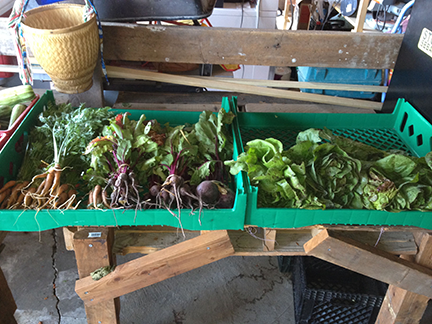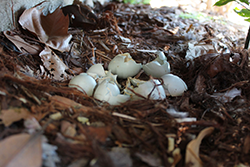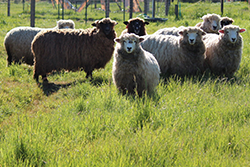Ecological Farmer Training February 2014 – November 2014
There is a growing need and interest for creating local livelihoods, supplying for the needs of regional communities in multifunctional ways. The broad use of diverse techniques in integrated agriculture and regenerative permaculture farming is becoming more and more critical. Our world no longer has cheap oil and abundantly available clean water and soil reserves. The Ecological Farmer Training directly builds agricultural skills that are economically sound and ecologically abundant.
It is possible to grow food, medicine and raw materials while enhancing water quality and abundance, increasing bio-diversity, building soil and increasing community food security, health and agricultural productivity!.
Have you dreamed of growing food for your community?
Would you like support in developing the growing, processing and business skills required to have a livelihood connected to nourishing your neighbors in an ecologically appropriate way?
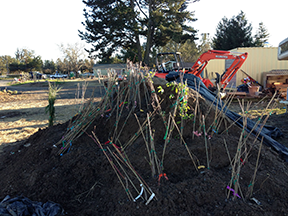 Join a cohort of others interested in exploring functional models of diversified, integrated and permaculture farming and food systems for addressing food security at all levels. Get prepared in this comprehensive, mentored, project-based training the practical knowledge to launch a farming business and take your place in the local food economy.
Join a cohort of others interested in exploring functional models of diversified, integrated and permaculture farming and food systems for addressing food security at all levels. Get prepared in this comprehensive, mentored, project-based training the practical knowledge to launch a farming business and take your place in the local food economy.
Learn from local farmers and experienced instructors and get prepared to
- run a farm business,
- design an integrated, diversified farm system, tailored for you and your goals, that can enhance the fertility of the land and your pocketbook
- design your farm for energy, water and soil conservation and efficiency
- understand your role in your regional food economy
- participate with a cohort of colleagues for ongoing support
Classes and mentorships will be held at the stunning Regenerative Design Institute learning farm, Commonweal Garden, and at local working farms in Marin and Sonoma Counties.
Who is this for?
The Ecological Farmer Program is for anyone ready to roll up their sleeves, put their hands in the earth, work with people, plants and animals, serve the health and well-being of their communities and engage in fully regenerative entrepreneurship. New regional food systems are being built: be a part of that foundation for the world you want to live in. The program is designed for those ready to take the next step toward their vision of actively farming for a living and those wanting engage in a local scale food business.
What it entails:
- November – May: Seven months of classes, hands-on workshops, field-trips and guided study (2-3 days per week)
- May – October: 5 months of on-farm practicum with a mentor.
- Development of a business plan for either a new or existing multi-functional farm and or food project.
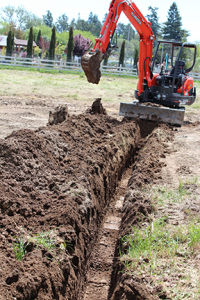 During this training we will also explore the following:
During this training we will also explore the following:
- Basic ecological soil, crop and water management
- Business planning, marketing and project management
- Rural, peri-urban and urban context
- Farm Management theories for multi-functional integrated agricultural systems
- Regenerative farm and food business design
- Food as medicine
- Environmental Regeneration
- Creating regionally-based livli-hoods with ecologically scaled farming and food business
- Human Health and Nutrition and addressing the obesity epidemic
- Multi-output production; food, seeds, medicines, utilitarian products, fiber, fuel, forage, farm-a-ceuticals, raw materials, environmental services, landscape amenities and cultural heritage.
- Food Security and addressing access to nutrition and health and social equity through your business plan design
- Transportation constraints and opportunities
- Seed Saving
- Value Added
- Science, technology, practice, non-hierarchical development models
- Energy efficiency plans and Onsite energy production
- Livelihood opportunities and poverty alleviation
- Traditional, native and local knowledge
- land preparation, to seeding and planting to harvesting to market
- Community farming and Community-based Innovations
- Food sovereignty strategies
- Food stock management
- Access to land and capital
- Current models of change in the food and agriculture system
- Food, fiber and medicine businesses
- planning and preparation for opportunities and uncertainties ahead
Sustainable Practices course:
Introduction to Sustainable Practices is a course which examines, in depth, the issues of creating a sustainable community, starting with the individual and journeying to family, community, city, county, state, nation and globally. Students will analyze their relationship to ecosystems, the environment and the health of all living things on the planet. We will explore the impacts of social equity, economy, ecology on our planet. We will investigate the relationship between human beings and other living beings, the ability of humans to coexist with natural systems in a manner that honors and maintains the health of natural systems. Intense attention will be fostered through discussions, articles and our personal stories. Earth rights, human and non-human rights, and immediate Earth problems will be addressed, which then will guide us to solutions, to be empowered to transfer our words into direct, positive actions.



